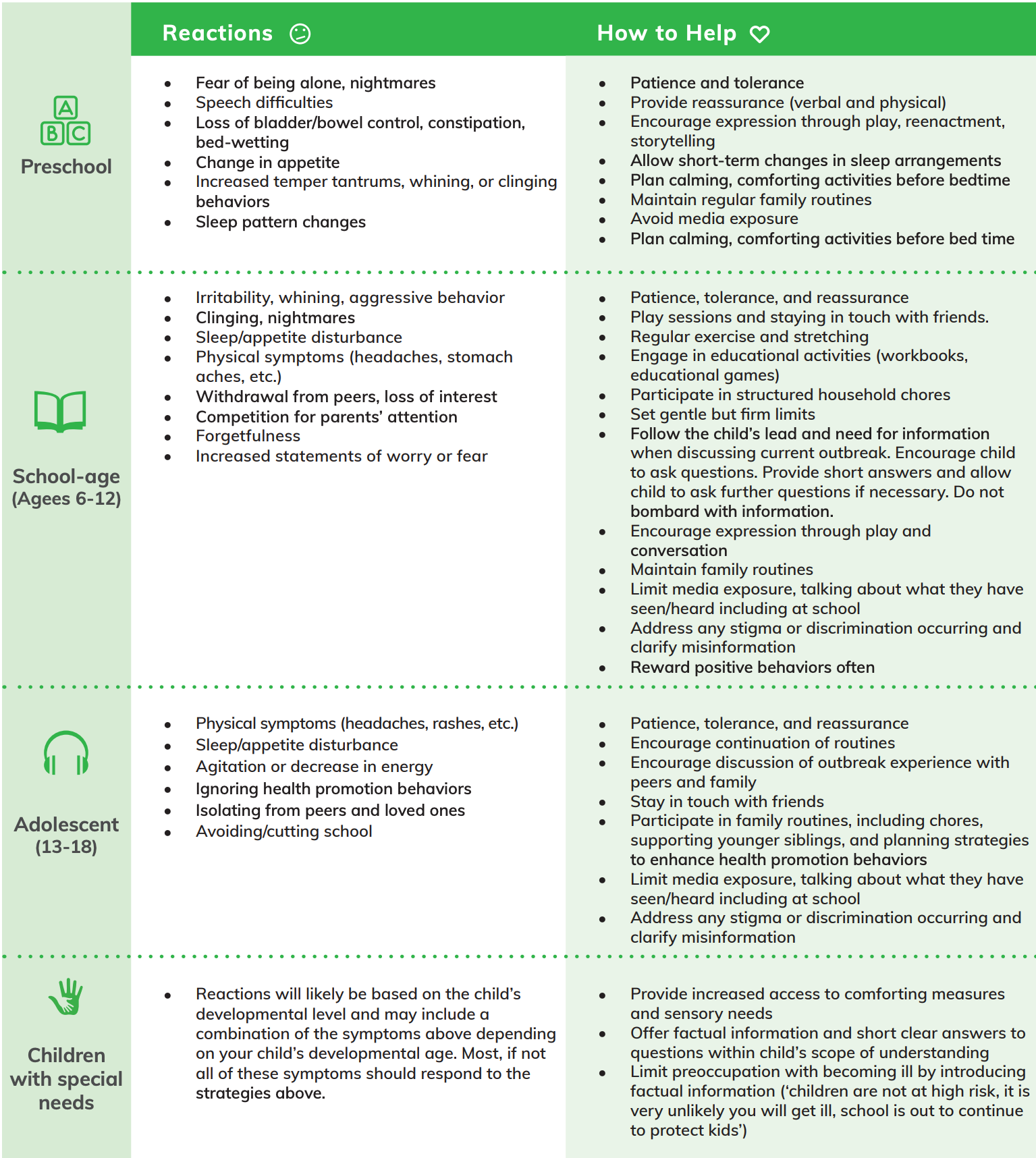
Helping children cope during the COVID-19 outbreak
All of the news and information about the COVID-19 outbreak can be overwhelming – especially for a child. How do you know if your child needs some extra care and attention? What can you do to help?
Children may respond differently to an outbreak like coronavirus (COVID-19) depending on their age and developmental level.
Mary Bridge Children’s developed recommendations adapted from the National Child Traumatic Stress Network to help your child cope.
Preschool
Signs to watch for: fear of being alone, nightmares, change in appetite and sleeping.
Ways to help: be patient, providing both verbal and physical reassurance as well as planning calm and comforting activities before bedtime.
School age (6-12)
Signs to watch for: a withdrawal from peers, loss of interest, irritability and forgetfulness.
Ways to help: virtually staying in touch with friends, incorporating daily exercise, limiting media exposure and rewarding positive behavior.
Adolescents (13-18)
Signs to watch for: a lack of energy, avoidance, isolation and physical symptoms such as headaches and rashes.
Ways to help: reacting with patience, tolerance and assurance is key. Make sure to have open and honest conversations often about their feelings and to clarify any misinformation they may have heard.
Children with special needs
Signs to watch for: Children with special needs will likely act based on their developmental age. Reactions may include a combination of those previously mentioned.
Ways to help: The best way you can help is by providing increased access to comfort measures and offering factual information with short, clear answers to questions within the scope of their understanding.

Learn more at marybridge.org/coronavirus